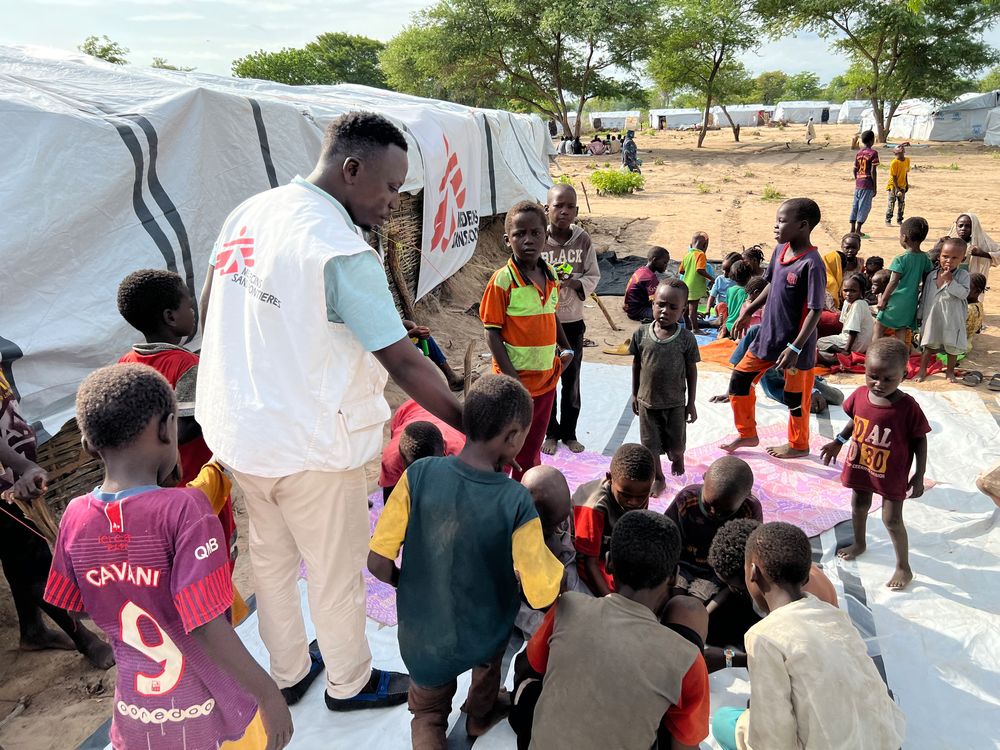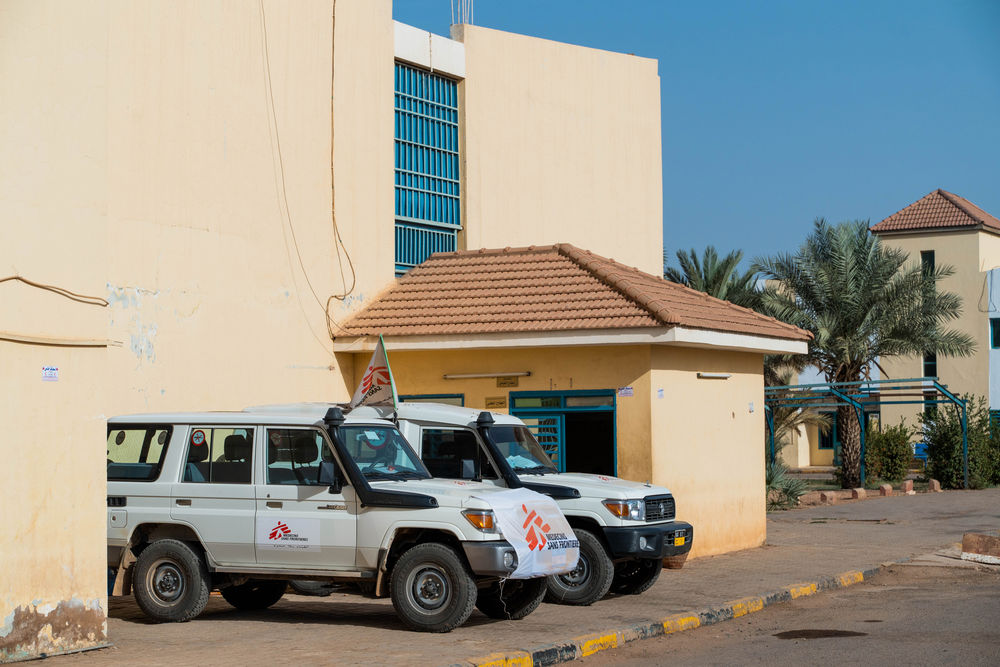After the start of the war in mid-April in Sudan, 13,800 people fleeing violence arrived in CAR, according to the UN: they are mostly Sudanese refugees, but also Central African nationals who had fled their country during different periods of crisis.
While the first refugees chose to settle in the border town of Am-Dafock to reduce the distance that separated them from their relatives in Sudan, the Central African government decided to relocate them to the Korsi site in Birao. So far, 1,200 people have been relocated here, which is safer for people who are displaced and more accessible to humanitarian organizations. However, most of the refugees are women and children and many are reluctant to be resettled without the consent of the head of family.
The result is that around 90 per cent of refugees are still at the border, where they have insufficient assistance as very few humanitarian organizations are working there.
“With the rain starting to fall, we are preparing for the worst”
Adam Idriss Moussa, 64, father of eight 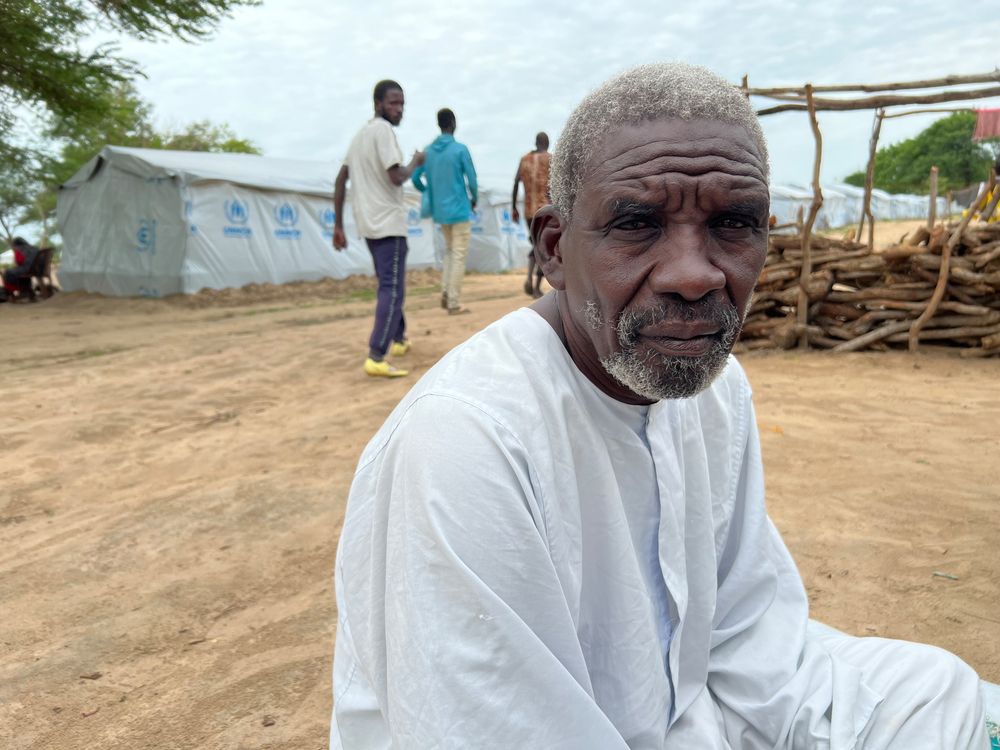 © MSF/Vivien Ngalangou
© MSF/Vivien Ngalangou
“I am a resident of Am-Dafock, on the Sudan side of the border with Central African Republic.
At first, when conflict broke out between the army and paramilitary forces on 15 April 2023, I thought that a quick solution would be found. But faced with the scale of the fighting in Khartoum and other regions, I made the decision to protect my family from the atrocities. So we crossed the border to the Central African side and registered as refugees.
Our life on the site currently is not so bad because we are assisted by several NGOs. However, there is a risk of being bitten by scorpions and snakes and, with the rain starting to fall, we are preparing for the worst, because of the risk of malaria and other diseases.”
“As soon as I arrived at the site, I had pains everywhere”
Hadjora Ismail, 25, mother of four and pregnant with her fifth child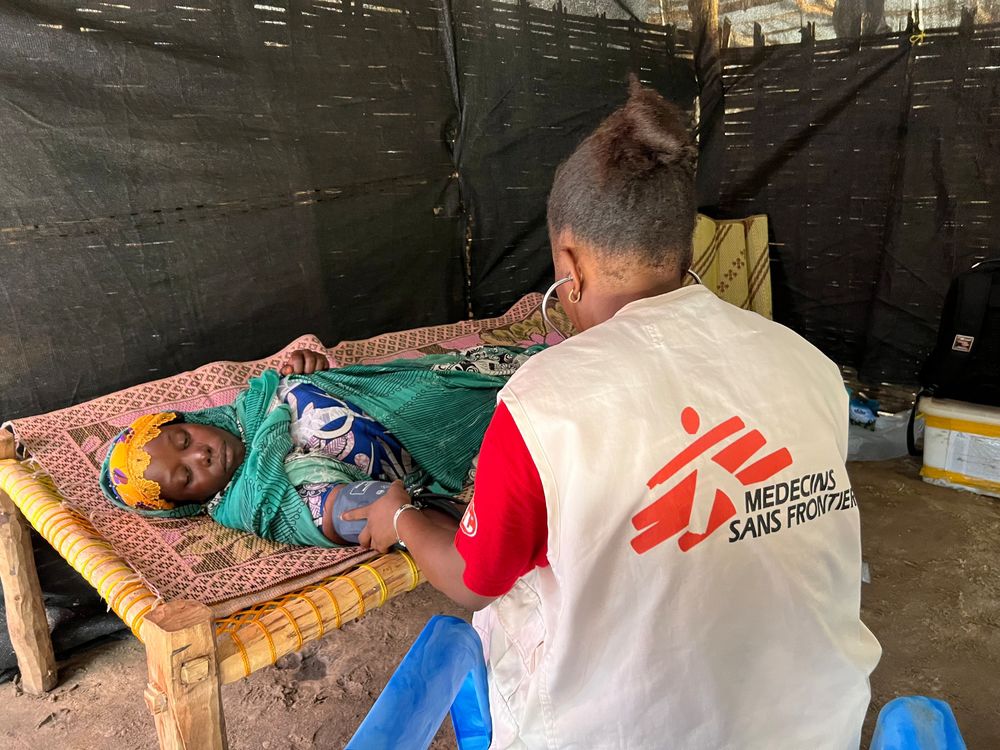 © MSF/Vivien Ngalangou
© MSF/Vivien Ngalangou
“I arrived at the refugee site in Birao just three days ago. For the moment I am sleeping in the reception tent. To get here, I had to travel many miles through Sudan with my children for four days.
My husband is a trader. When the fighting broke out, he had left to pay for some goods in Khartoum, the capital, and he was unable to get out of the city in time. For his safety, he prefers to wait there until some calm returns before joining us here.
As soon as I arrived at the site I had pains everywhere: a stomach ache, a headache and gastroenteritis. I came to the MSF clinic for treatment. They made me feel welcome and they gave me medicine, all for free. The doctor told me to come back in four weeks for a check-up. I have been pregnant for four months and this is the first time I have seen a doctor.”
“Most days all we eat is rice – I fear malnutrition”
Issa Fadali, 55, retired teacher and father of six 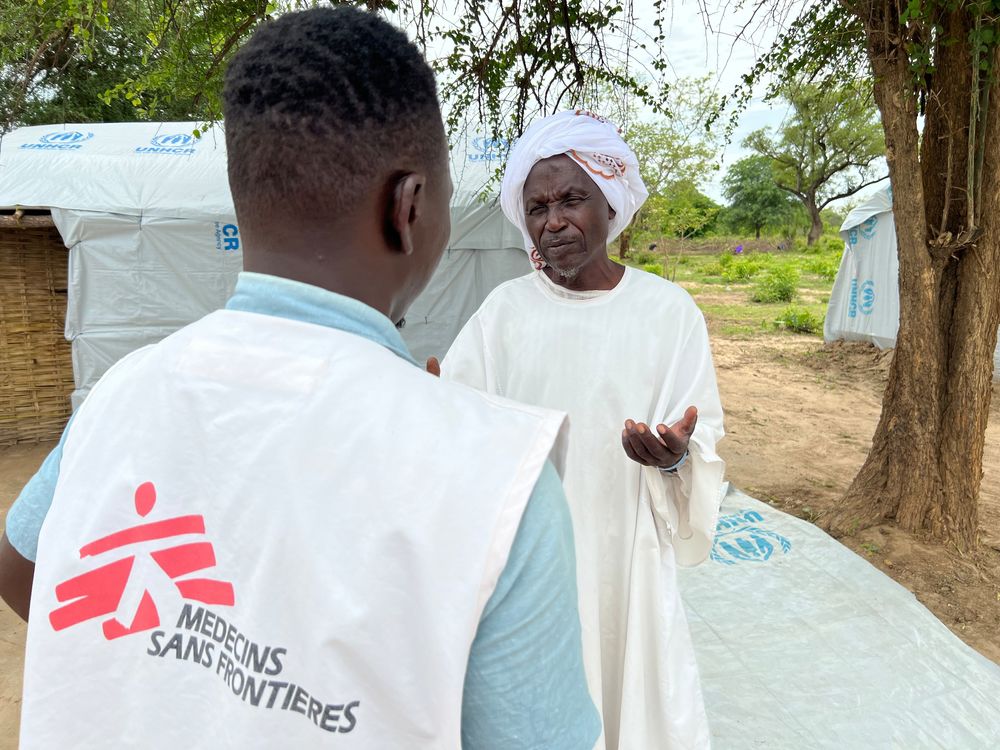 © MSF/Vivien Ngalangou
© MSF/Vivien Ngalangou
“I come from Nyala in Sudan and arrived at the refugee site in Birao three weeks ago. I am here with my first wife and five children. My second wife did not come with us. I asked her to stay with my one-year-old son at his uncle’s house in Sudan.
In terms of safety, this place is calm, but it is the problems around health and food that concern me. Most days all we eat is rice – I fear malnutrition.
Just yesterday, one of my children fell sick due to the unhealthy conditions in which we live. He was seen at MSF’s clinic at Korsi site and received treatment free of charge.”
“I think a lot about my four children who stayed in Sudan”
Awa Ousman Ali Moustapha, 50, widow with six children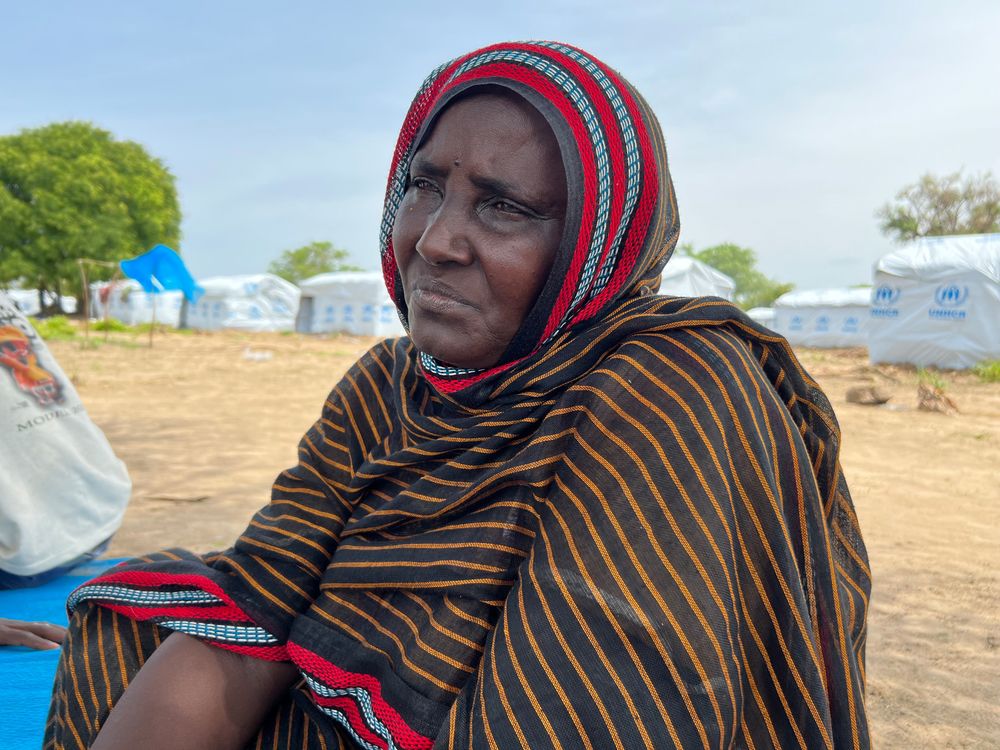 © MSF/Vivien Ngalangou
© MSF/Vivien Ngalangou
“I am with my two older boys here – one is 16 and the other is 18. As they are teenagers, I was afraid I would lose them or they would be taken by force to fight, which is why I decided to take them out of Sudan. We travelled the 250 km between Nyala and Am-Dafock on a three-wheeled motorbike and the rest of the way to Birao in a UNHCR truck.
I think a lot about my four children who stayed in Sudan with their maternal uncle. Anyone can fall sick here because our living conditions are very difficult, we have no money and we can’t generate any income. We are dependent on NGOs and healthcare is essential.”
“From Nyala to Birao we suffered”
Yahya Youssouf, merchant, father of 6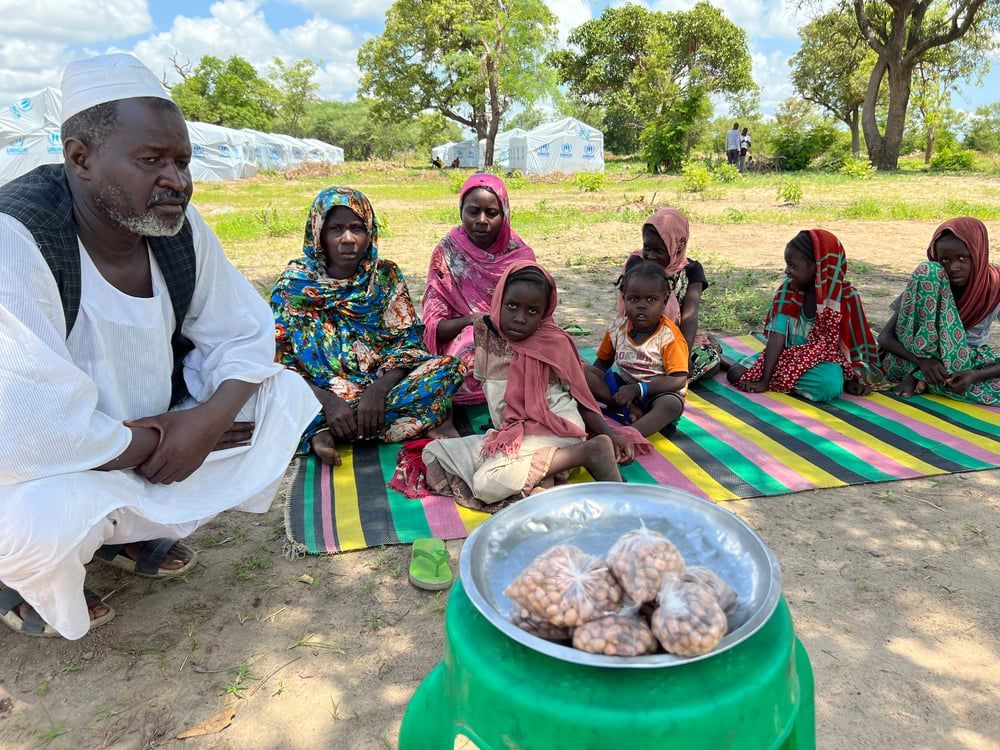 © MSF/Vivien Ngalangou
© MSF/Vivien Ngalangou
“I arrived at this camp in Birao yesterday by my own means because the operation to transport refugees from the border in Am-Dafock was suspended for security reasons and because of the rains. From Nyala [in Sudan] to Birao we suffered; paying for transport for a three-wheeled motorbike is expensive now. Thank God my family and I arrived safely.
We have not yet been assigned a tent and for the moment my children are exposed to various dangers such as reptiles and diseases. My daughter had a fever this morning. After seeing the doctor, she received free medicine and for the moment she is getting better.”
MSF Response in CAR
In order to support refugees who are arriving, MSF launched an emergency response here in early May. MSF currently runs a health post within the Korsi site focused on treating pediatric care. The post carries out around 200 consultations per week for illnesses such as acute respiratory infections, malaria or intestinal parasites.
MSF also provides mental health support, as many refugees have suffered violence, loss of loved ones and experienced other traumatic situations. Between 12 May and 10 July, MSF staff carried out 1,154 medical consultations and shared information with 1,463 people about mental health.
In addition, support is provided to the Birao district hospital. Capacities have been reinforced to prepare for a possible influx of wounded and critical cases are stabilized and then referred to the capital, Bangui, by plane, so patients can access necessary specialised care.


